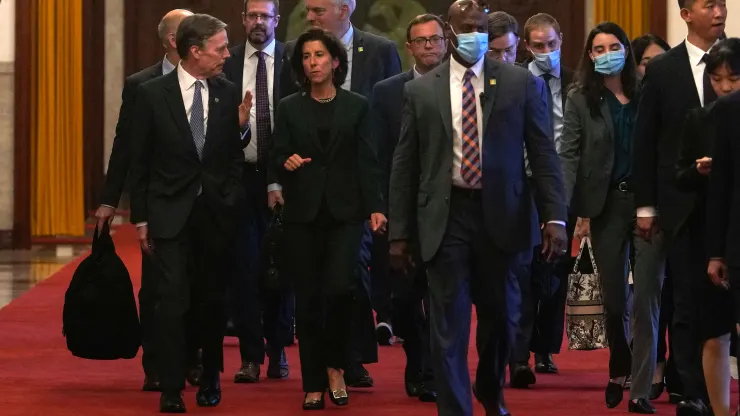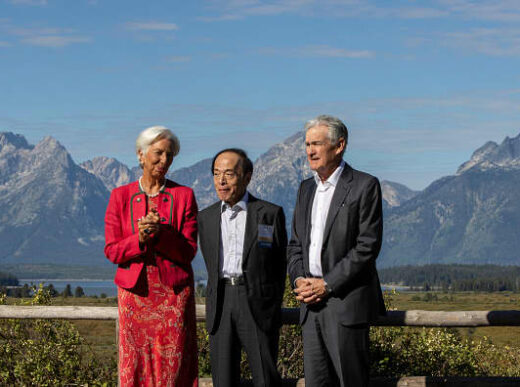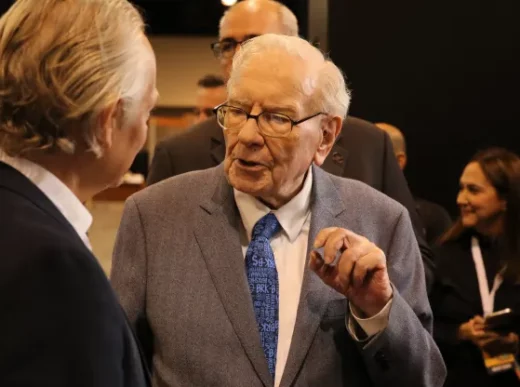In a bid to foster more certainty for American businesses operating in China, U.S. Commerce Secretary Gina Raimondo engaged in an exclusive interview with CNBC’s Eunice Yoon, urging China to create a more predictable business landscape. This entreaty comes amidst the complexities of the U.S.-China relationship, marked by trade tensions and national security concerns. Raimondo’s visit to China marks a pivotal moment in bilateral interactions, as she becomes the first U.S. Commerce Secretary to venture into the country in half a decade. Here, we unpack Raimondo’s call for greater business predictability and its implications.
Raimondo’s Message: Predictability is Key
In her conversation with CNBC, Raimondo succinctly encapsulated her message to China: American businesses seek not only the desire to engage but also the vital ingredients of predictability, due process, and a level playing field. Amidst an appetite for U.S. businesses to maintain a foothold within China, Raimondo emphasized the presence of an uneven playing field and unpredictability that hinders the realization of this goal. Such a clarion call underscores the importance of cultivating an environment where businesses can thrive without the specter of uncertainty.
Complex Terrain of U.S.-China Relations
Raimondo’s plea for business predictability comes at a time of intricate relations between the two global powers. Long-standing grievances, including issues of forced tech transfers and preferential treatment for local companies, have contributed to the frictions that culminated in the imposition of tariffs during the Trump administration. Raimondo’s stance also underscores the growing emphasis on national security, as technological advancements hold the potential to shape military capabilities. Thus, the U.S. government’s role in safeguarding national security underscores the intricate tapestry of U.S.-China dynamics.
China’s Counteractions and the Challenge of Trust
While China, too, prioritizes national security, its measures have raised concerns among foreign businesses. China’s updated counter-espionage law and raids on international consulting firms have sparked apprehensions. Raimondo’s call for clarity on China’s counter-espionage law underscores the need for tangible actions to engender trust. Despite assurances from Chinese officials about embracing American business, Raimondo underscores the need for deeds that substantiate these promises, fostering an environment of credibility and assurance.
The Path Forward: A Balancing Act
China’s aspirations to encourage foreign investment and create a predictable environment align with the broader narrative of bolstering economic ties. Recent high-level Chinese government statements echo this sentiment, creating a backdrop for potential collaboration. However, these general pronouncements must be reinforced with substantive actions to pave the way for genuine predictability. While progress has been made in certain areas such as intellectual property protection, the journey toward a consistent and reliable business environment remains complex.
Navigating the Future: Challenges and Opportunities
Raimondo’s efforts to inject predictability into the U.S.-China business relationship are commendable, yet the road ahead is intricate. Experts point to the duality of the Biden administration’s approach, striking a balance between limiting China’s access to critical technologies and seeking mutually beneficial trade and investment avenues. As the U.S. and China establish communication channels on commerce and trade secrets, the challenge lies in translating dialogue into actionable steps that truly enhance predictability.
The Boeing Connection: A Symbol of Potential Progress
Amidst Raimondo’s mission, her interaction with Boeing executives in Shanghai speaks volumes. As Boeing prepares to recommence 737 Max deliveries to China, this development signifies potential progress in the U.S.-China relationship. It highlights the delicate interplay between economic interests and geopolitical dynamics, encapsulating the multifaceted nature of business ties between the two nations.
Conclusion: Navigating the Path Ahead
Commerce Secretary Raimondo’s endeavor to catalyze predictability in the U.S.-China business sphere encapsulates the intricacies of contemporary geopolitics and economic interdependence. Her message underscores the importance of tangible actions in fostering trust and credibility. As both nations tread cautiously, seeking to reconcile diverse interests, the challenge lies in converting rhetoric into reality and achieving a more predictable business landscape that benefits both American companies and the broader global economy.















